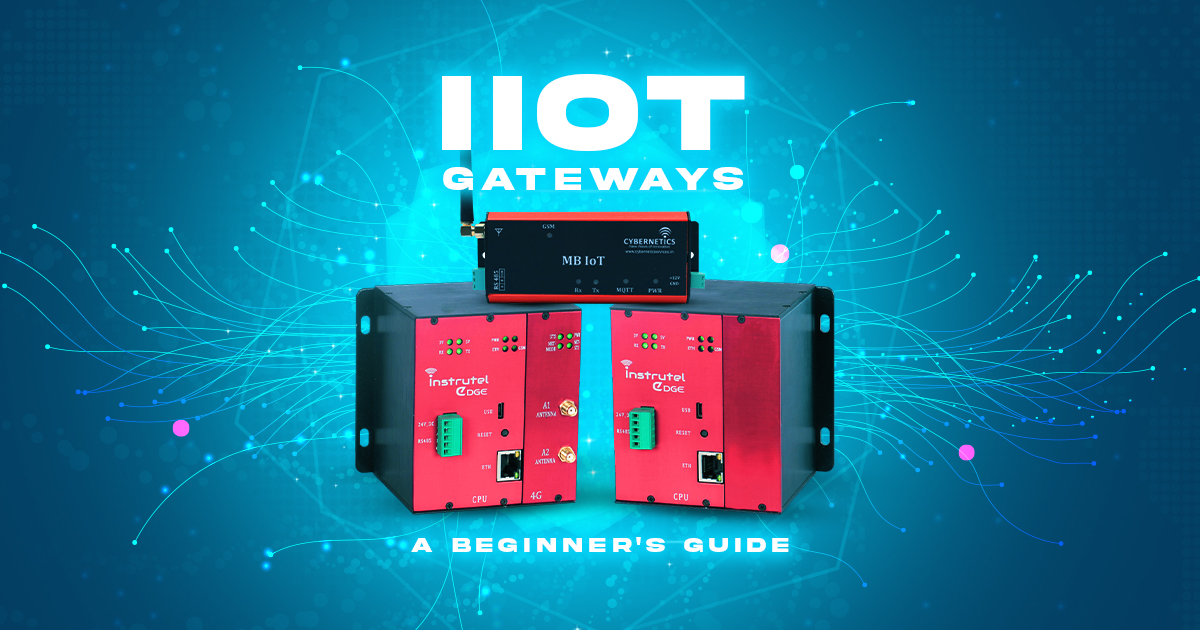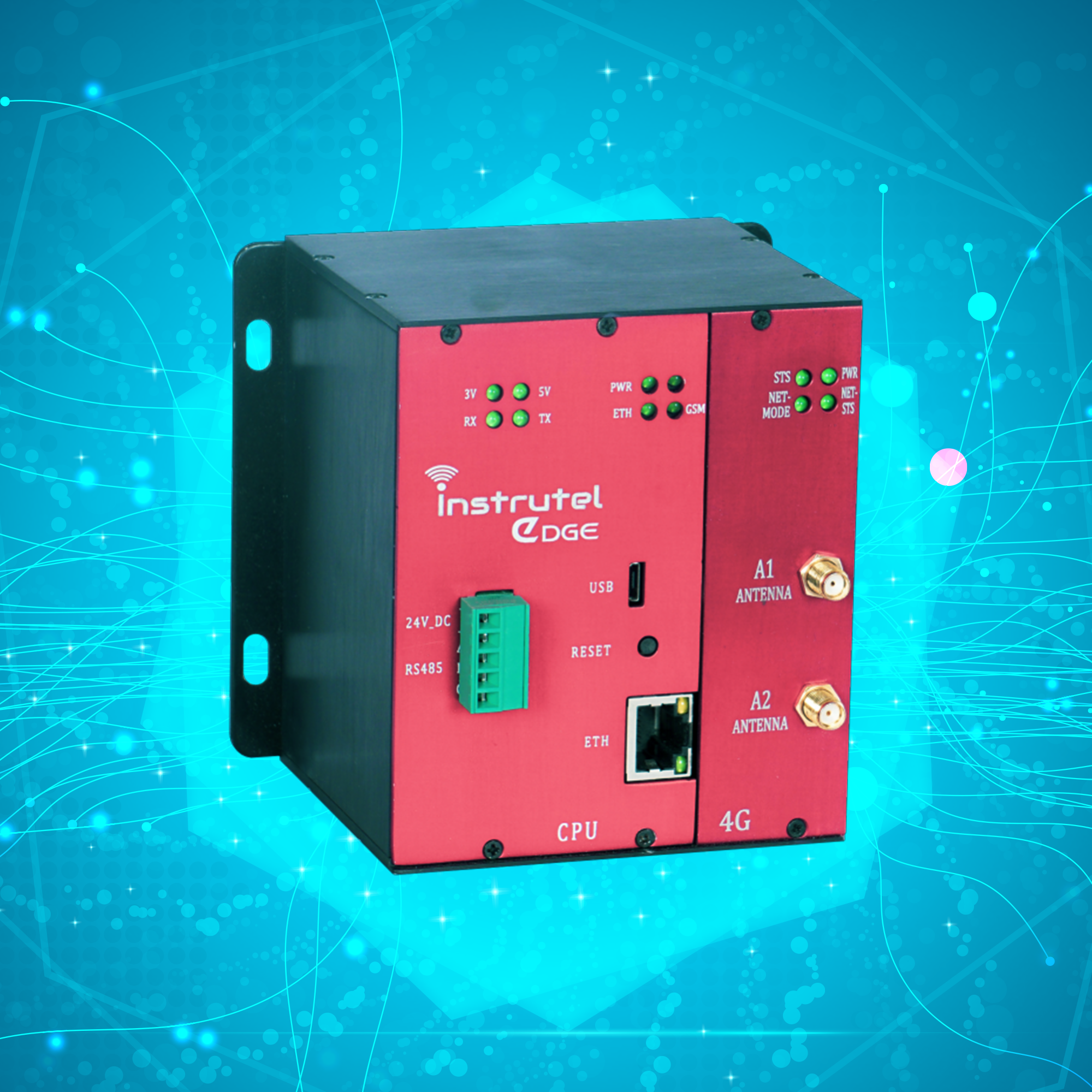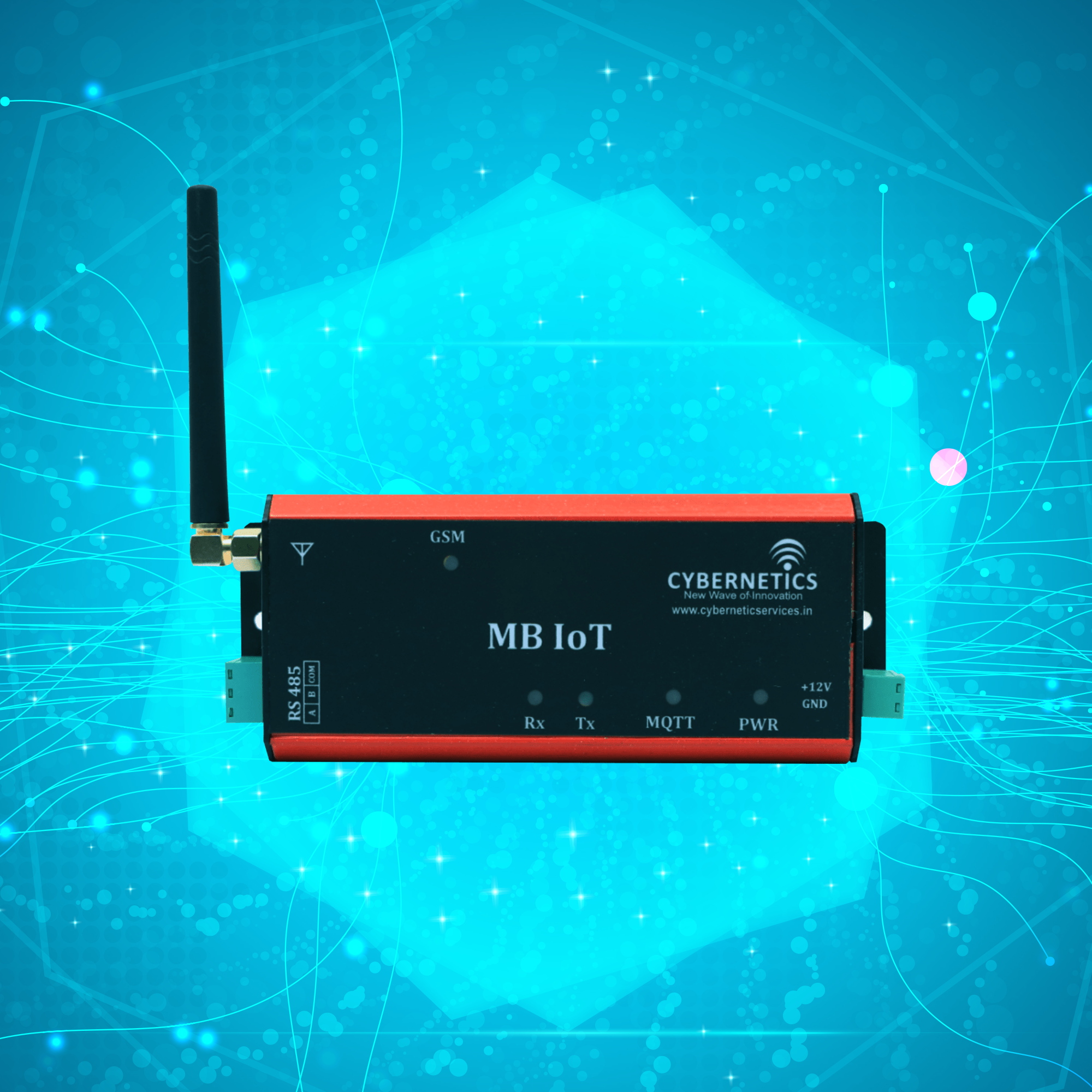
The Industrial Internet of Things (IIoT) isn't a sudden invention, but rather the culmination of decades of industrial automation advancements. While the term "IIoT" itself emerged in the late 1990s, its roots trace back to the invention of the programmable logic controller (PLC) in 1968. This innovation enabled finer control in manufacturing, paving the way for more sophisticated automation.
Today, fueled by the internet, cloud computing, and miniaturised sensors, IIoT has become a transformative force. It's a network of interconnected devices that collect, analyse, and transmit data, fostering intelligent automation and process optimization across industries. IIoT gateways play a critical role in this transformation, and this blog serves as your guide to understanding them, their importance, and the growing significance of IIoT in India.
The Rise of IIoT: Why It Matters
Traditional industries are undergoing a digital revolution driven by IIoT. Sensors embedded in machinery can monitor everything from temperature and pressure fluctuations to vibration levels and energy consumption. This real-time data empowers businesses to:
- Boost Efficiency: By analysing data, industries can identify areas for improvement and optimise production processes, leading to significant cost reductions and increased output.
- Enhance Predictive Maintenance: IIoT facilitates predictive maintenance by detecting anomalies and potential equipment failures before they occur. This minimises downtime, reduces maintenance costs, and improves overall equipment effectiveness (OEE).
- Improve Safety: Real-time monitoring of environmental conditions allows for proactive safety measures, creating safer working environments for employees.
- Drive Innovation: IIoT data can be used to develop innovative products and services, providing businesses with a competitive edge.
The Power of IIoT Gateways: Connecting the Dots
IIoT gateways act as the central nervous system of an industrial IIoT network. They collect data from various sensors and devices using different communication protocols such as Wi-Fi, Bluetooth, cellular networks, or even specialised industrial protocols. The gateway then filters, processes, and aggregates this data before securely transmitting it to the cloud or local servers for further analysis and visualisation.
IIoT Applications Across Industries
IIoT adoption is gaining traction across various sectors, including those previously mentioned:
- Defence: IIoT enables real-time monitoring of assets like vehicles, weapons systems, and infrastructure. This allows for predictive maintenance, optimised logistics, and improved situational awareness for defence personnel.
- Energy & Utilities: IIoT allows for smart grid management, optimising energy distribution, reducing power losses, and integrating renewable energy sources.
- Process Industries: IIoT facilitates precise monitoring and control of crucial parameters in industries like chemical, oil & gas, and food & beverage. This ensures consistent product quality, optimised resource utilisation, and improved safety protocols.
- Healthcare: IIoT can be used for remote patient monitoring, connected medical devices, and improved medication management.
- Railways: IIoT plays a vital role in modern railway systems. Sensors on trains and tracks monitor vital signs, enabling predictive maintenance, real-time train location tracking, and optimised scheduling for improved efficiency and safety.
- Agriculture: Precision agriculture utilises IIoT sensors to monitor soil conditions, crop health, and weather patterns, enabling data-driven decisions for optimal yield and resource utilisation.
- Smart Cities: IIoT can be integrated into infrastructure to manage traffic flow, optimise waste collection, and monitor environmental conditions for improved sustainability and citizen well-being.
India's Embrace of IIoT
The global IIoT market is expected to reach a staggering USD 1.3 trillion by 2025. This exponential growth is driven by factors like increasing automation needs, rising concerns about energy efficiency, and growing emphasis on operational safety.
India is actively embracing the potential of IIoT. Government initiatives like "Make in India" and "Digital India" are pushing for increased adoption of industrial automation technologies. Indian industries across sectors are recognizing the benefits of IIoT and are investing in solutions. A 2023 report states that the Indian IIoT market is expected to grow at a CAGR of 25% over the next five years, reflecting the country's commitment to industrial modernization.
Getting Started with Your IIoT Journey
If you're considering implementing IIoT in your industrial setup, here are some initial steps to guide you:
- Identify Your Goals: Clearly define your specific needs and objectives for deploying IIoT. Are you looking to improve efficiency, reduce downtime, enhance product quality, or achieve a combination of these?
- Evaluate Existing Infrastructure: Analyse your current network infrastructure and identify any potential limitations for seamless IIoT integration.
- Choose the Right Gateway: Select an IIoT gateway that aligns perfectly with your specific needs. Consider factors like data processing capabilities, communication protocols supported (Wi-Fi, Bluetooth, cellular, etc.), security features, and scalability to accommodate future growth.
- Develop a Data Management Strategy: Plan how you will store, analyse, and utilise the valuable data collected by your IIoT sensors.
- Start Small and Scale Up: Begin with a pilot project to test the effectiveness of IIoT in your environment before deploying it across your entire operation. This allows you to identify and address any challenges before a full-scale implementation.
What are the primary challenges in implementing IIoT?
After conducting over 100 field deployments, involving single to multiple devices and integration with third-party software, several key challenges have been identified:
- Each customer has unique requirements, necessitating customized solutions.
- Domain knowledge is essential for sustainable implementation.
- Integrating third-party devices presents challenges.
- Debugging is required at module and system levels for multiple device integrations.
- Ensuring data correctness when installing new instruments is crucial.
- Full-stack manpower, proficient in both field devices and software, is essential.
- Providing after-sales support is challenging due to evolving customer site conditions.
At Instrutel, we're committed to empowering businesses with Industrial Intelligence through our industry-leading IIoT gateways, known for their:
Ready to Embrace the IIoT Revolution with Instrutel?
Things we offer for diverse consumer needs :
- Modular Hardware Stack: Our innovative approach allows for flexible adaptation in both technology and scale. This ensures your gateway can evolve alongside your business needs, minimising downtime and maximising future-proofing.
- Diverse Product Range: We offer a comprehensive selection of IIoT gateways to cater to your specific requirements. Whether you prioritise raw processing power, advanced security features, or seamless integration with existing protocols, Instrutel has the perfect solution for you.
- Unwavering Commitment to Quality: We prioritise building reliable and secure gateways that minimise downtime and ensure the uninterrupted flow of critical data.
Instrutel aspires to be a pioneer in technological advancements for industry and society as a whole. Our focus areas – digitalization, data analysis, and resource optimization – are the cornerstones of a future-proof industrial landscape.
Our Best Quality Products in IIoT category :
-
eDGE Gateway
The eDGE (GSM) device is purpose-built for industrial use, serving as a data collection system in factory environments. It gathers data from various devices and transmits it to servers using the MQTT protocol.
Features:
- Supports global GSM/GPRS modules for 2G & 4G LTE.
- Capable of handling up to 500 parameters.
- Connects with up to 30 instruments simultaneously.
- Cloud-based support system.
- Plug-and-play functionality.
- Boasts high reliability, compact design, and cost-effectiveness.
Applications:
- Monitoring utilities such as energy, water, steam, and pressure.
- Flow monitoring.
- Warehouse monitoring.
- Process data monitoring.
-
MBIoT
MB_IoT is an industrial device specifically designed to implement a data collection system. It has been used in many factory environments to gather data from different applications. It acquires data from the instruments and transmits data to the server through MQTT protocol, receives data and represents it in the form of JSON.
Features
-
Global supporting GSM/GPRS module 2G.
-
Can support up to 80 parameters.
-
Can connect up to 8 instruments to MB _ IoT.
-
Cloud base support system.
-
Plug and play.
-
High reliability, Low cost compact design, Convenient to use.
Are you ready to harness the transformative power of IIoT? Contact Instrutel today and let our experts guide you towards a customised IIoT solution that perfectly aligns with your vision for operational excellence. Welcome to the future of industrial intelligence, powered by Instrutel.

